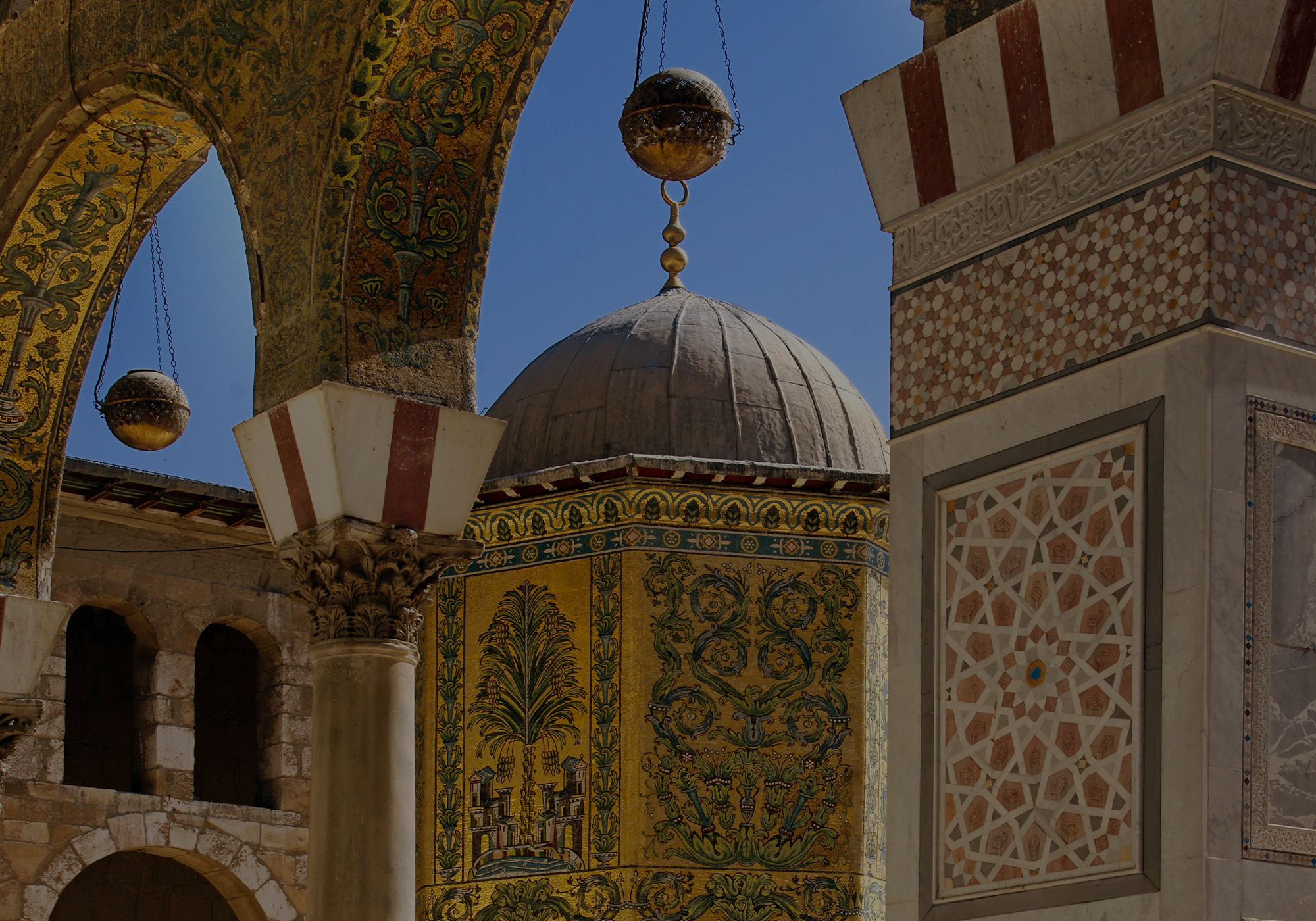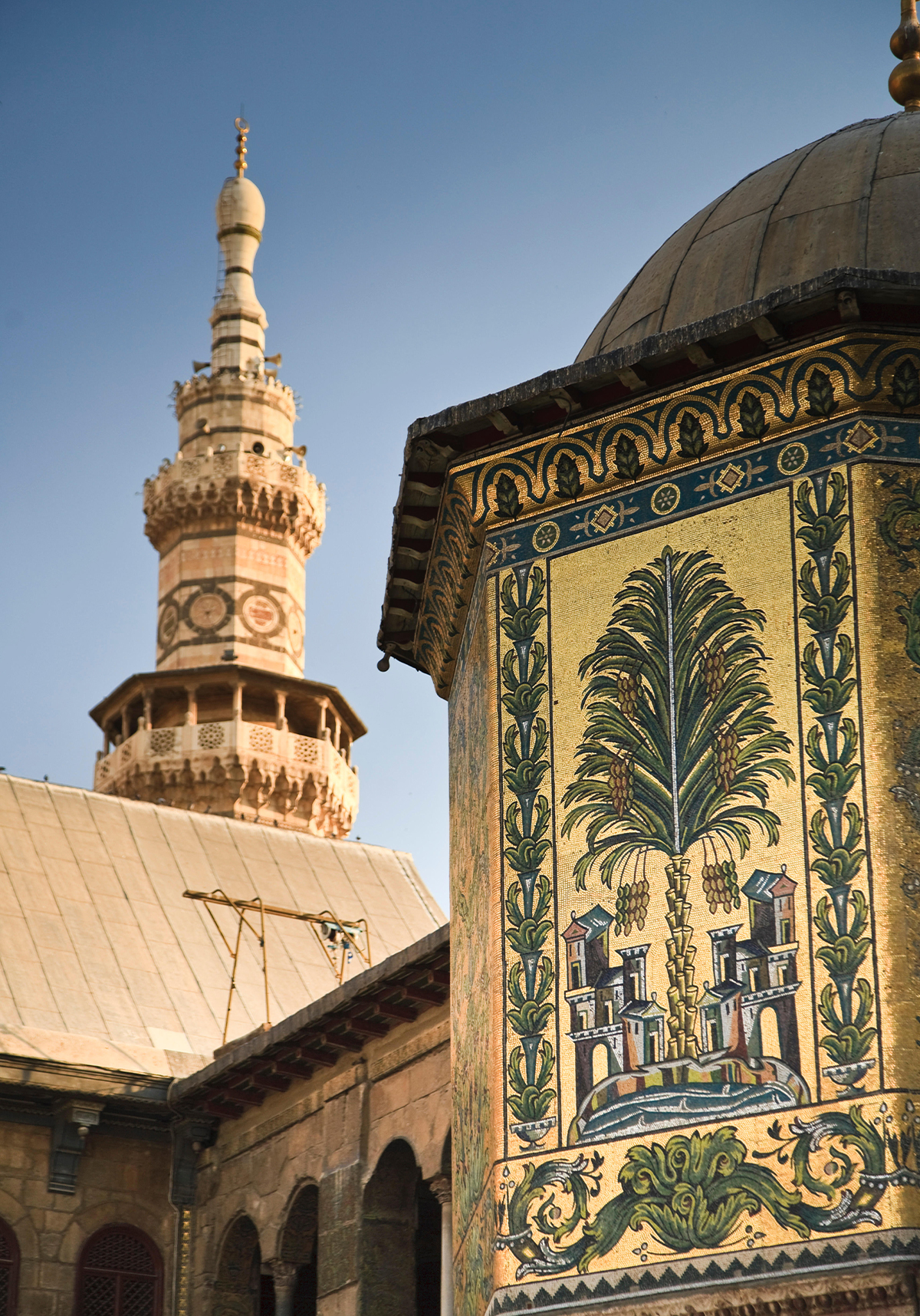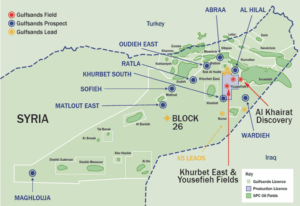
Syria
The Group’s heritage and core assets are in the Syrian Arab Republic. Gulfsands main interest is in Block 26, a World Class resource in North-East Syria, currently under Force Majeure, which we hope will soon be lifted to enable us to return to operations in the near future.
A new Dawn For Syria
Given the fall of the Assad Regime in December 2024, the installation of a new Government in Syria, the general acceptance of the new Syria back into the international fold, and the trend towards an easing and/or lifting of international sanctions, Gulfsands is now in a position to start making concrete steps towards a re-entry into Block 26.
Learn More
Block 26 Re-Entry
Gulfsands’ core Syria strategy for many years has been to Protect and Preserve its rights related to Block 26 and to Prepare for a re-entry into Syria and a return to operations when circumstances allow.
Given the fall of the Assad Regime in December 2024, the installation of a new Government in Syria, the general acceptance of the new Syria back into the international fold, including recent moves to ease/lift international sanctions (led by the UK who lifted all relevant Energy Sector sanctions in March and April 2025, and followed by the US General Release 25 in May 2025 and the European Union Council Decisions in February and May 2025), Gulfsands is now in a position to start making concrete steps towards a Re-Entry into Block 26.
Learn More

Syria – Block 26

Gulfsands is the operator of the Block 26 PSC and holds a 50% working interest in the Production Sharing Contract (“PSC”) along with Sinochem (50% working interest). The Group is not presently involved in any production or exploration activities on Block 26 as the licence remains in Force Majeure. However, recent developments in Syria including the fall of the Assad regime and the installation of new Syrian government mean that we hope that Force Majeure can soon be lifted and Gulfsands will be able to return to operations.
During the period of Force Majeure, the Group has ensured that it has remained compliant with all applicable sanctions in relation to Syria and all applicable laws in order to preserve its rights under the Block 26 PSC.
Block 26 covers an area of 5,414 km² in north east Syria and the PSC grants rights to explore, develop and produce hydrocarbons from all depths outside the pre-existing fields within the area and from the deeper stratigraphic levels below the pre-existing discovered fields. The final exploration period of the PSC was set to expire in August 2012 when Force Majeure was declared in December 2011. It is anticipated that an extension in the exploration period can be negotiated with the Syrian authorities to at least replace that period of time which was remaining when Force Majeure was declared. Gulfsands has identified a portfolio of nine high impact exploration prospects which it intends to explore once Force Majeure is lifted.
Under the Block 26 PSC, rights to the benefits of production from discovered fields last for a minimum of 25 years from the date of development approval with extension of a further 10 years thereafter available at the partners’ option.
Under the Group’s operatorship, two oil fields containing reservoirs of Cretaceous age have been discovered and developed within the PSC area, Khurbet East (2008) and Yousefieh (2010). During 2011 combined production from these fields reached a level of just under 25,000 barrels of oil per day (“bopd”) before the impact of UK sanctions resulted in the curtailing of production levels. In addition, two further oil and gas discoveries with reservoirs of Triassic age have been identified beneath the Cretaceous aged oil producing reservoir in the Khurbet East field and within the Kurrachine and Butmah Dolomite formations. Development approvals for these discoveries were granted in 2008 and 2011 respectively. A further oil discovery was made late in 2011 by Gulfsands in the Cretaceous aged reservoirs at the Al Khairat exploration well, this discovery awaits further evaluation and development work.
The operation of these fields during the production phase is undertaken by Dijla Petroleum Corporation (“DPC”), a joint operating company formed between Gulfsands, Sinochem and General Petroleum Corporation (“GPC”) for this purpose, to which staff of both Gulfsands and GPC had previously been seconded. Since the declaration of Force Majeure under the PSC in December 2011, Gulfsands has had no involvement with the operations of DPC, leaving DPC under the management of GPC secondees. As we prepare for re-entry and the lifting of Force ,Majeure we intend to re-build Dijla as a fully functioning joint operating company in partnership with GPC.
Strategy for Block 26
Block 26 could be proven to contain over a billion barrels of recoverable resource.
Gulfsands’ core Syria strategy is to Protect and Preserve its rights related to Block 26 and to Prepare for re-entry into Syria and a return to operations. While the Block 26 PSC remains in force majeure due to applicable sanctions, Gulfsands undertakes its re-entry planning in a strict observance of applicable sanctions and laws.
Gulfsands builds ESG and sustainability considerations into all its re-entry planning, as well as respecting the UN Security Council Resolution 2254, which appears to be the accepted blueprint for a Future Syria. It also maintains compliance with all local laws to protect its rights under its PSC while it remains in force majeure.
The Board believes, and an independant Competent Persons Report (“CPR”) has confirmed, that upon re-entry, on a gross basis, Block 26 could be proven to contain over a billion barrels of recoverable resource with the potential for production levels of around 50,000 boepd from existing discoveries in the near term, and over 100,000 boepd from a full block development incorporating the potential exploration upside.
Stay Up to Date
Connect with us on LinkedIn and Twitter



